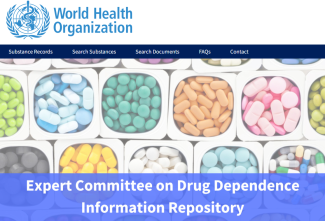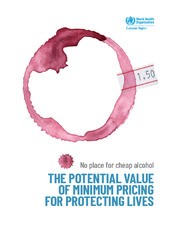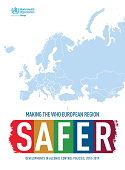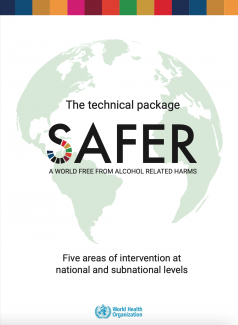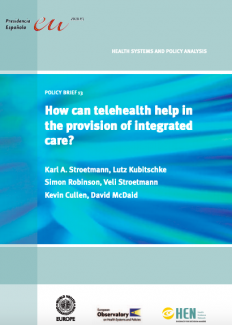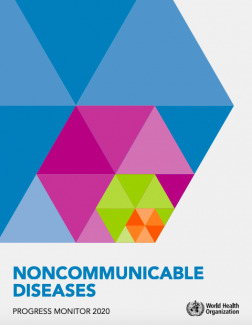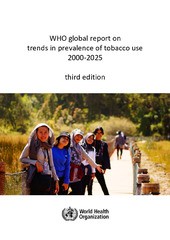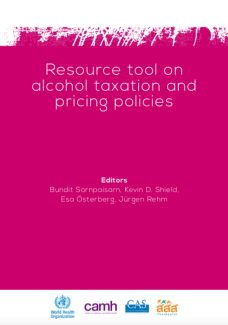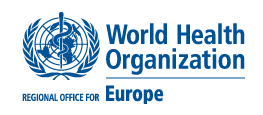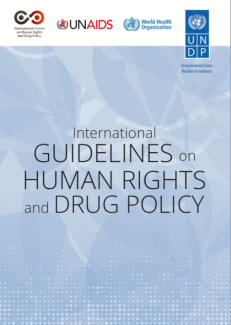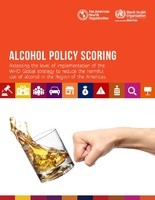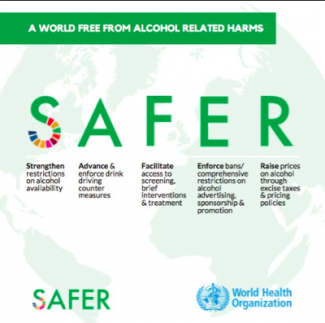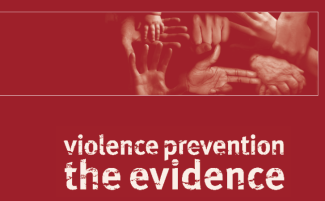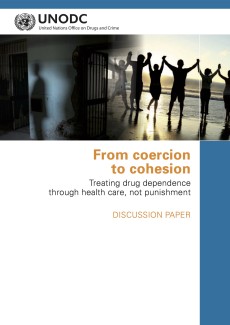Search
No place for cheap alcohol: the potential value of minimum pricing for protecting lives
Overview
The WHO European Region has some of the highest levels of alcohol consumption and corresponding rates of alcohol-related harm in the world. Pricing policies and taxation are among the most effective measures that policy-makers...
Making the European Region Safer: developments in alcohol control policies, 2010–2019 (2021)
This report presents the current status of alcohol consumption, alcohol-attributable harms and the implementation of alcohol control policies in the WHO European Region, using available data from 2010, 2016 and 2019.
A detailed overview is...
Making the European Region Safer: Developments in Alcohol Control Policies, 2010–2019
This report presents the current status of alcohol consumption, alcohol-attributable harms and the implementation of alcohol control policies in the WHO European Region, using available data from 2010, 2016 and 2019.
A detailed overview is...
Reducing Harm Due to Alcohol: Success Stories From 3 Countries
The European Region has the highest level of alcohol consumption in the world.
To reduce these harms, WHO/Europe has identified three affordable, feasible and cost-effective intervention strategies:
- increase excise taxes on alcoholic...
Estimating the Impact of Achieving Turkey's Non-communicable Disease Policy Targets
According to the World Health Organisation, around 20,000 deaths could have been avoided in Turkey in 2017 if the country had reached its current goals of reducing tobacco and salt consumption by 30%, and physical inactivity by 10%.
The...
WHO Launches Year-long Campaign to Help 100 Million People Quit Tobacco
The World Health Organisation has launched a year long campaign to help people quit their tobacco use.
As part of the campaign “Commit to Quit" the WHO have announced a new Quit Challenge on WhatsApp and have published “More than 100...
How Can Telehealth Help in the Provision of Integrated Care?
The World Health Organisation defines telehealth as:
The use of telecommunications and virtual technology to deliver health care outside of traditional health-care facilities.
Well-designed telehealth schemes can improve health care...
Noncommunicable Disease Progress Monitor
Noncommunicable diseases are the leading cause of premature death globally.
Every year, 41 million people die from heart attacks, stroke, cancer, chronic respiratory diseases, diabetes or a mental disorder.
Despite the concerning trends...
WHO Global Report on Trends in Prevalence of Tobacco Use 2000-2025
Tobacco is the only legal drug that kills many of its users when used exactly as intended by manufacturers. WHO has estimated that tobacco use (smoking and smokeless) is currently responsible for the death of about six million people across...
Resource Tool on Alcohol Taxation and Pricing Policies
Alcohol taxation and pricing policies have several public health, economic and social benefits as they have the capacity to:
- Generate tax revenue
- Reduce alcohol consumption and associated harms (covering both externalities and...
UNODC-WHO Joint Programme on Drug Dependence Treatment and Care
Both the WHO and UNODC strive to address the complex issues presented by drug use and dependence.
The vision: The effective and humane treatment for all people with drug use disorders. Nothing less than would be expected for any other...
Alcohol Country Fact Sheets
The International Guidelines on Human Rights and Drug Policy
Alcohol Policy Scoring
Assessing the level of implementation of the WHO Global strategy to reduce the harmful use of alcohol in the Region of the Americas.
Abstract
[FOREWORD]. Monitoring progress is a key component whenever planning and committing to implement...
World Health Organization SAFER Alcohol Control Initiative
The WHO Global Status Report on Alcohol and Health claims that alcohol consumption contributes to more than 3 million deaths globally every year and is the seventh leading risk factor for premature death and disability.
The World Health...
Demand for Cigarettes and Tax Increases in El Salvador
Objective: Analyze short- and long-term elasticities of demand for cigarettes in El Salvador as a tool for supporting recommendations on tax increases to reduce prevalence and consumption through price increases.
Methods: Demand for...
La demanda de cigarrillos y el aumento de impuestos en El Salvador
Objetivo: Analizar las elasticidades de corto plazo y de largo plazo de la demanda de cigarrillos en El Salvador como instrumento para apoyar recomendaciones sobre aumentos de impuestos para reducir la prevalencia y el consumo vía aumento...
Preventing Violence Through Alcohol Consumption Reduction Measures
The World Health Organization has released a series of briefings on violence prevention. Of particular interest is Chapter 3: Preventing Violence by Reducing Availability and Harmful Use of Alcohol.
‘Harmful use of alcohol is a major...
From Coercion to Cohesion: Treating Drug Dependence through Health Care, Not Punishment
The aim of this draft discussion paper, “From coercion to cohesion: Treating drug dependence through health care, not punishment”, is to promote a health-oriented approach to drug dependence. The International Drug Control Conventions give...
Share the Knowledge: ISSUP members can post in the Knowledge Share – Sign in or become a member
